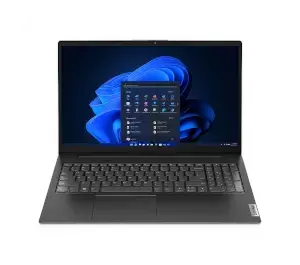Career Services
 Enroll in a Degree Program Now ... Get a Laptop
Enroll in a Degree Program Now ... Get a LaptopExplore our Programs
Explore our Programs
Get Ready to Get Hired
University of Arkansas Grantham is committed to the success of each student and graduate. Through the use of University of Arkansas Grantham Career Services, students and alumni receive assistance in achieving career goals.
Resource, tools, and support include the following:
- Job search strategies
- Career management and planning
- Resume and cover letter preparation
- Mock interviewing
- Military-to-civilian transition
Career Services cannot ensure employment and does not provide placement services. Should you have any questions relating to careers associated with your degree program or need assistance in the development of the career tools necessary to conduct a successful career search, contact Career Services at careerservices@uagrantham.edu
New from ed2go: Skilling and Certification Courses
Online workforce development courses from ed2go are now available. Choose from hundreds of introductory courses or in-depth training programs that can help you pick up a new skill or prepare for industry-standard certification. These non-credit courses are continuously updated to meet employer demand; instructor-led courses are staffed by expert instructors with years of professional experience. To learn more, visit our Workforce Development page.Micro-Internships for Students and Alumni
How would you like to be quickly and efficiently introduced to top companies' internship opportunities? UA Grantham now offers you valuable professional experience outside the traditional internship cycle. Through Micro-Internships, you can learn and hone the skills that are in demand for employers, build meaningful connections with businesses across the country, and get paid – all in your spare time.What is a Micro-Internship?
Micro-internships are short-term, paid, professional projects posted by a diverse range of employers across a wide range of industries. Often, these projects require 5-40 hours of total work across 2-4 weeks and can be completed remotely. They are posted on a rolling basis and can be applied for year-round. There are usually several to choose from, but an application does not guarantee acceptance.What are the benefits of a Micro-Internship?
These opportunities are high-quality resume builders that also help you acquire and fine-tune some of the skills today's employers are looking for in potential employees.By participating in a Micro-Internship, you can:
- Explore new industries and potential career paths.
- Build tangible relationships with employers by demonstrating your skills and abilities in substantive projects – many employers use Micro-Internships as a way to connect with potential hires.
It's Easy to Get Started
It's easy to get started. Log on to BlackBoard. Once you're logged into Career Launch in the Organizations section, look to the left side of your screen and find the "Career Management" section, where you'll see a "Micro-Internship" link. Clicking "Micro-Internship" will direct you to a new site. Once there, you will need to create a profile and explore and apply for the micro-internship that best fits your degree area. Apply for the internship of your choice.Professional Development from Tutor.com
Our Career Services team provides professional development tools and one-on-one assistance—both while you’re in school and after you graduate—to help guide you through career planning or job searching.
Through our expanded collaboration with Tutor.com, career resources and support including help writing cover letters, finding jobs, preparing for interviews, and transitioning from the military to the civilian job market are now available from Tutor.com. To access these services, please use the instructions below.
There is no guarantee—expressed or implied—that a college degree or certificate from University of Arkansas Grantham will improve employment prospects, earnings, earnings potential, or career advancement opportunities.
Your Link to Career Opportunities
Join our UA Grantham Connect group on LinkedIn, and get in touch with UA Grantham students, graduates, and recruiting partners: Get advice on how to enhance your professional LinkedIn profile, connect with group members for career advice, or share job opportunities.